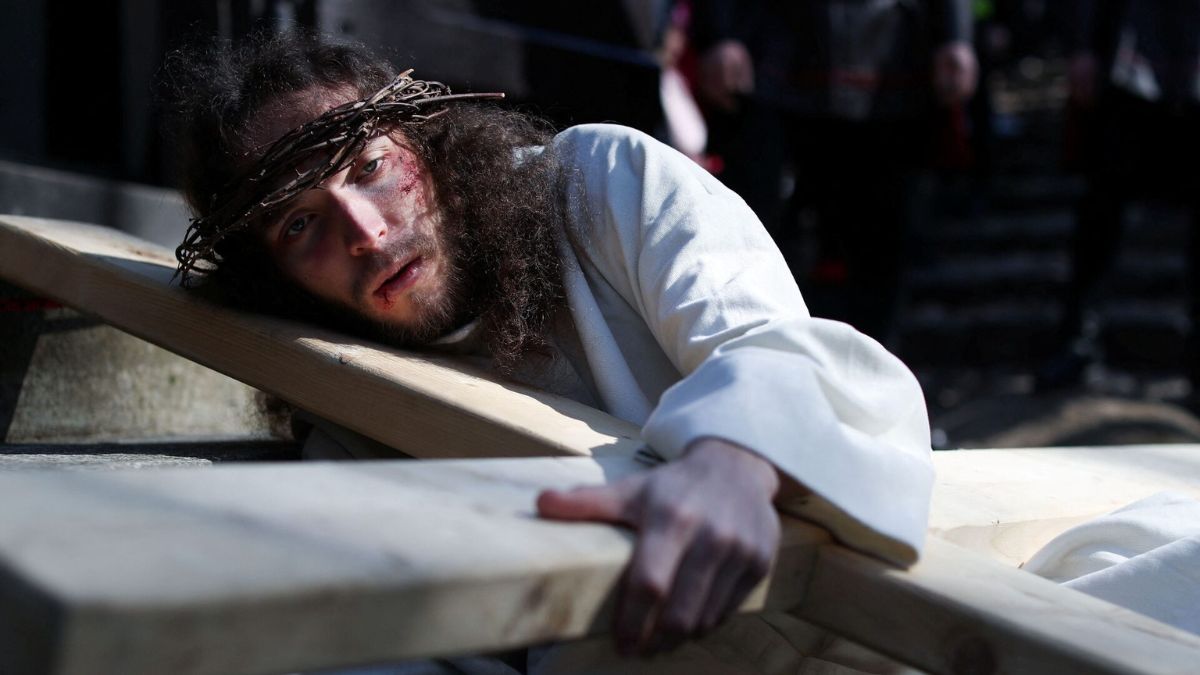- By Supratik Das
- Fri, 18 Apr 2025 12:41 PM (IST)
- Source:JND
Good Friday, a significant day in the Christian calendar, marked with solemnity, prayer, and contemplation by millions worldwide. On the Friday preceding Easter Sunday, this day is remembered as the crucifixion and death of Jesus Christ, and is regarded as one of the most holy observances in Holy Week.
The Significance of the Name 'Good Friday'
But what's 'good' about Good Friday, a day so intimately linked with suffering and loss?-Even though it's a somber day, Good Friday is called "good" because of its religious importance in Christian belief. The name comes from the fact that the death of Jesus was seen as a required sacrifice for the sins of mankind, ultimately providing salvation and hope.
Catholic devotees re-enact the "Way of the Cross" on Good Friday in Wejherowo, Poland. | Credits: Reuters
Historically, the term "good" was interchangeable with holy or pious. In that sense, Good Friday is a testament to the holy sacrifice Jesus offered on the cross, a cornerstone of Christian doctrine. Just as the Bible is referred to as the "Good Book," this Friday is "good" not because of what happens, but because of what it signifies: divine love, forgiveness, and redemption. Though the common explanation relates "good" to its religious goodness, another hypothesis postulates that "Good Friday" could have linguistically developed from "God's Friday" (Gottes Freitag in German). Nevertheless, the majority of linguists and scholars reject this proposal since there is no etymological proof.
In other languages and cultures, the day is typically spoken of in more serious language — such as Karfreitag (Sorrowful Friday) in German or Holy Friday in English-speaking Orthodox usage, underscoring the sorrow and sacrifice involved.
How Good Friday Is Celebrated
Good Friday is considered by Christians as the culmination of Jesus's mission on earth, representing his unshakeable love and concern. His death is regarded as having reconciled man to God, paving the way for forgiveness and eternal life. The selfless act of sacrifice is the focus of the Easter narrative, which ends with the resurrection on Easter Sunday, converting the sadness of Good Friday into hope and festivities.
Good Friday practices differ significantly across denominations and locations. Some common practices include:
• Church services with scripture readings and somber prayers
• Veneration of the Cross, where the faithful meditate on Christ's crucifixion
• Fasting and abstinence, particularly among Catholics, who might abstain from meat
• Reenactments of the Stations of the Cross, especially in nations such as the Philippines and Italy
• Acts of service and charity, demonstrating Christ's sacrifice and compassion
Also read: Good Friday And Easter Sunday 2025: Know Dates, Significance And All Other Important Details

